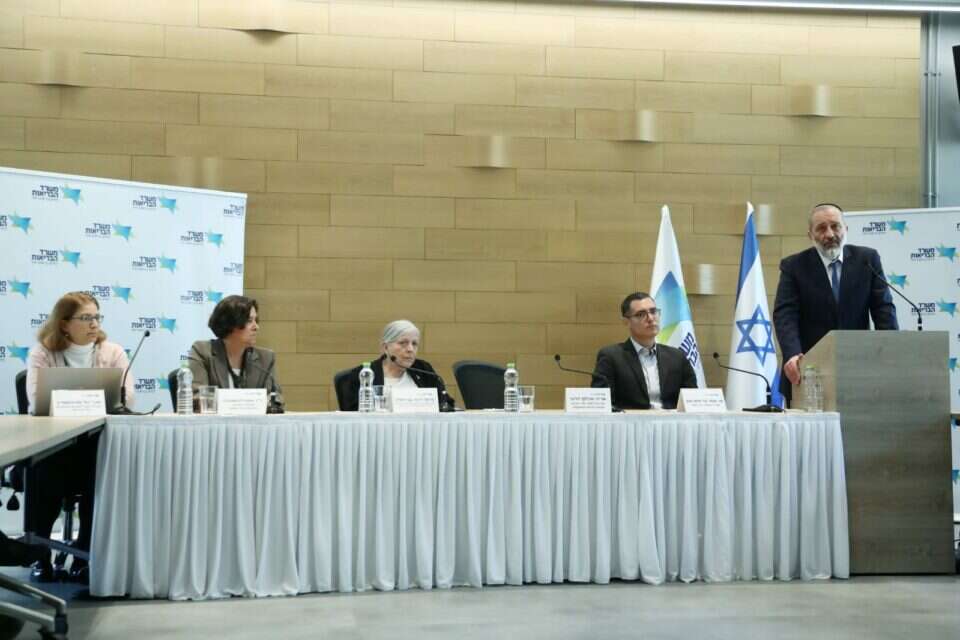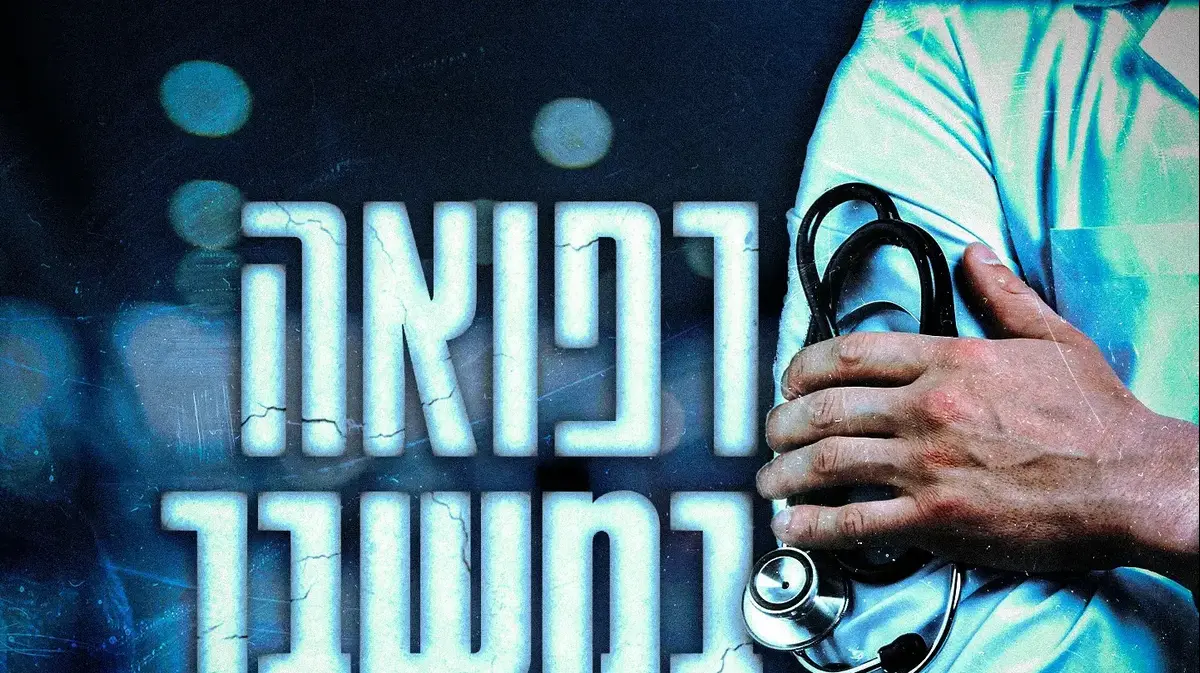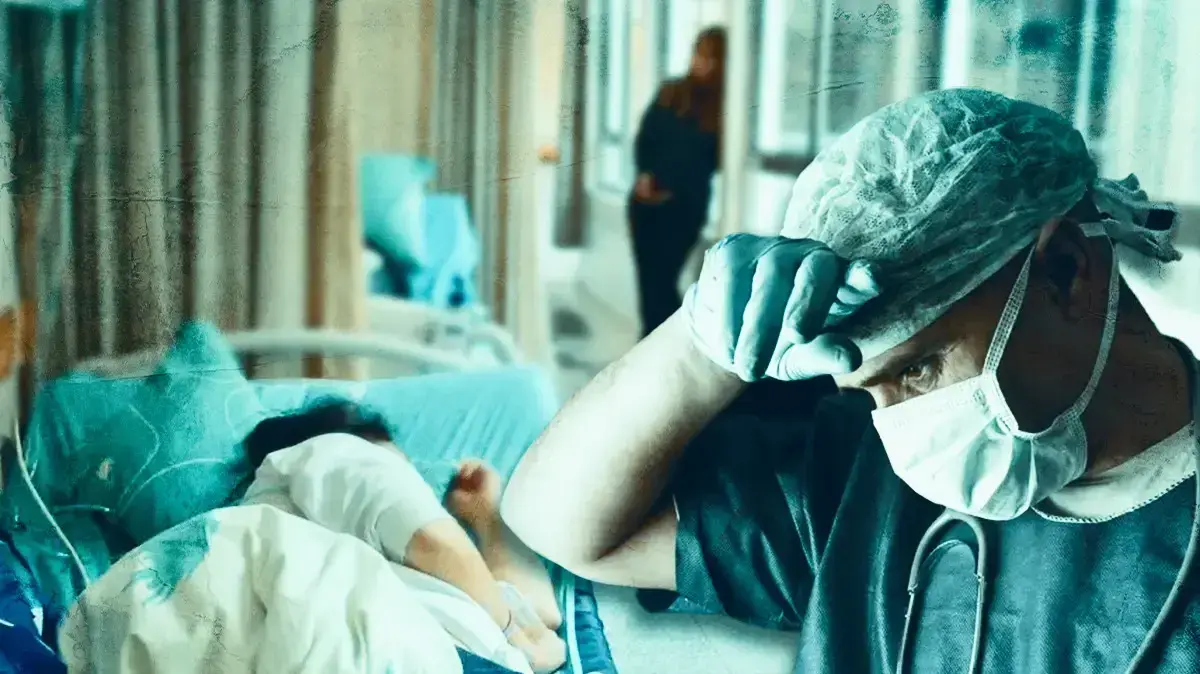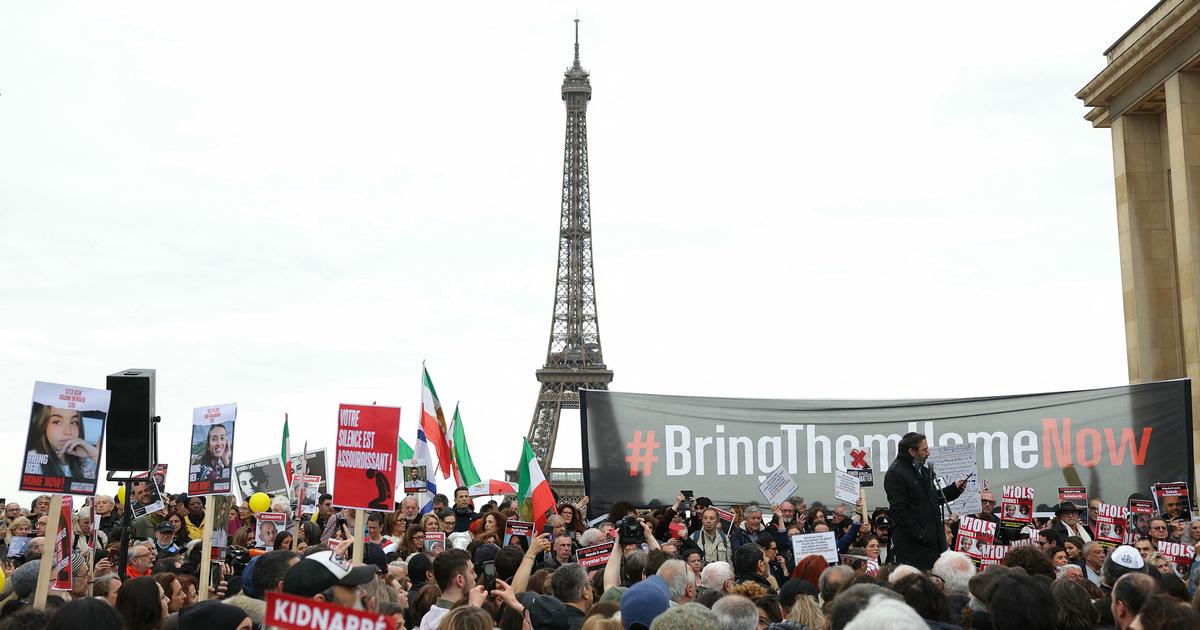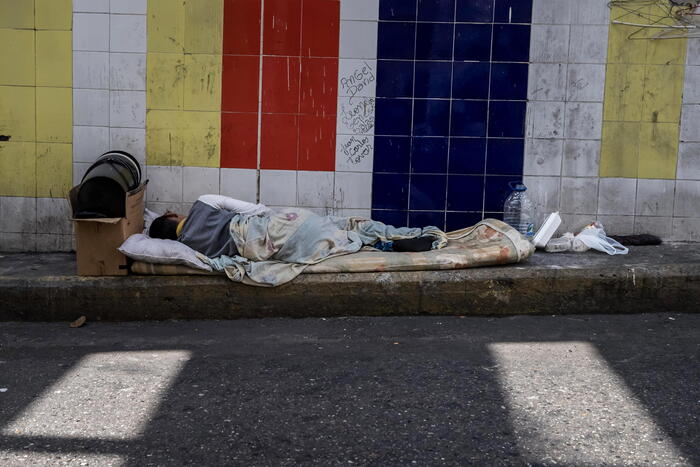The health basket committee for 2023 published today (Wednesday) the list of medicines and treatments approved by the state for subsidy, through the health insurance funds and government funding. At a press conference at Sheba Tel Hashomer Hospital, which was held with the participation of the Minister of Health and Chairman of Shas MK Arie Deri, Director General of the Ministry of Health Moshe Bar Siman Tov and other senior officials, they announced a list of important news for the patients in Israel.
122 medicines will be added to the medicine basket this year for 350 thousand patients.
Following the intervention of the incoming Minister of Health, another NIS 100 million was added to the supplemental budget and it will amount to NIS 650 million, the highest amount ever.
According to officials at the Ministry of Health, the size of the supplement allows large sums of money to be devoted to issues such as vaccines, eyeglasses and treatment of blood cancer patients.
Early treatment for breast cancer in the face.
entered the new health basket,
The obesity medicine will not be subsidized.
left out of the medicine basket,
"The recommendations of the drug basket committee that were presented to me today, concern all citizens of Israel," said Deputy Prime Minister Health Minister Aryeh Deri. "I am proud that the addition to the drug basket that we brought this year is the largest ever.
Thanks to this addition, oncology drugs, prevention technologies and life-extending products that were not planned entered this year.
These will allow the weaker sections to receive good and advanced medicine."
Half of the budget - for the cancer patients
More than half of the drug basket budget, about 53.5%, was dedicated to drugs for cancer patients and blood cancers.
This is an amount of approximately NIS 348 million, out of a budget of NIS 650 million.
The drug "Drazalex" is also among the main news in the drug basket.
The drug extends the life of patients with severe myeloma cancer from three years to 10 or even 15 years.
In addition, funding was approved to buy eyeglasses for children up to the age of 7. According to the estimate, these are about 55 thousand children at a total cost of NIS 40 million.
"Without a dry eye".
Prof. Ben Yehuda (second from the left) the press conference at the "Shiva" hospital, photo: Gideon Markowitz
"I thank the Minister of Health, and the Ministry of Health for the trust you have placed in me," said Prof. Dina Ben Yehuda, chairman of the basket committee. "Last night there was not a dry eye among the basket members.
This is one of the most complex challenges in the healthcare system.
The members of the committee came from a wide range of medical, managerial, public, social and ethical disciplines.
All of them were reflected in the committee's considerations.
Despite the differences, I felt in all the discussions that there was something that united us all in the decision-making process, and that is compassion."
"For me, this is also a sad day for those patients for whom we were not able to include new technologies. To the patients who were not given drugs this year, I want to say that this is not the end. I have every hope that the technologies for them will be included in next year's drug basket," Ben-Yehuda added.
Minister Deri reinforced her words.
"The members of the Medicines Basket Committee bear a heavy responsibility. The dilemmas they deal with are human rights. The decisions are great news for the public and will be submitted for approval by the government on Sunday. They concern all citizens of Israel and with absolute equality."
"Good news for the weak".
Minister Deri, next to CEO Bar Siman Tov and committee chairman Prof. Ben Yehuda, photo: Gideon Markowitz
The health insurance funds and the ministries of finance and health tend to support a model according to which the children will receive glasses in a satisfactory arrangement of the fund and not as an "open check", which may lead to price fluctuations and a mixing of private and public money.
The members of the committee expressed satisfaction that, along with life-saving medicine, the children will be allowed to see properly, learn and develop properly: the children will receive glasses with high-quality specifications that include thin lenses and an anti-scratch coating.
Out of the basket: the treatment that can save from death
As every year there are also disappointments.
A number of treatments for breast cancer patients did not enter the basket, as well as treatments for attention and concentration disorder for adults and children.
Even a children's vaccine against meningococcal B ("the violent bacteria"), did not enter the medicine basket at the last minute.
This is a vaccine that can prevent deaths.
Twenty cases of serious illness per year that also end in neurological damage in children can be avoided with the help of surgery.
The cost of the vaccine for all Israeli children was a whopping NIS 100 million, so the committee was looking for a model that would allow the vaccine to be introduced in "pulses".
However, the proposal of some members of the committee to provide the vaccine to a group of children based on the fact that crowded living conditions and a low socioeconomic status increase the risk of disease, was not supported by all the members.
The most expensive treatments
After 4 years of struggle for myeloma patients (a type of blood cancer), the treatment with the drug "Drazalex" entered the drug basket as a first line of treatment.
The treatment was introduced only after feverish negotiations, which resulted in a price reduction of NIS 85 million for approximately 550 patients.
A member of the committee warned that if the treatment does not enter the basket - "young patients will die".
in the ability of the treatment to extend the life of the patients from three years to a decade, and even to cure some of the patients.
More than 20 countries approved treatment with this drug before Israel.
Other expensive and effective therapies that have entered are CAR T treatments at a cost of approximately NIS 1.2-1.3 million per patient.
These are innovative treatments intended for patients with lymphoma and leukemia.
In their framework, the patient's immune system fights the cancer cells until complete recovery.
The treatment is intended for leukemia patients of the ALL type, follicular lymphoma and B-cell lymphoma and is intended for approximately 94 patients with 52.4 million.
Regularly about a third to 40% of the drug basket budget is allocated to drugs for cancer patients.
This is also the case this year, when the news in this area is particularly significant.
With the introduction of about ten effective drugs that are given to patients at an early stage (adjuvant or neoadjuvant) and increase the chances of cure from the disease, dozens of lung cancer patients, breast cancer patients and kidney cancer patients - will receive subsidies from the state for the difficult and complex treatments.
Productivity technologies?
Committee members: "This may be the last year"
In this year's basket of medicines, there is considerable reference to the field of prevention, expressed in vaccines.
A new and upgraded vaccine, "Prevner 20", entered the basket.
The vaccine is offered against pneumonia in people aged 65 and over, and eliminates the need to receive two vaccines that are given today.
Hasel will also apply the vaccine subsidy to those who do not suffer from chronic diseases.
Another vaccine costing NIS 44 million will be offered against the severe and long-lasting disease shingles (herpes zoster).
The vaccine will be given to those aged 65 and over as well as to those aged 18-65.
The "Gardasil" vaccine will be offered to prevent cervical cancer among 18-26 year olds, an age group that has not been vaccinated with this vaccine before.
More interesting news related to Pirion technologies.
Members of the committee commented that this may be the last year in which there will be openness to such issues.
"Mutual responsibility".
CEO Moshe Bar Siman Tov at the press conference, photo: Gideon Markowitz
As part of the basket discussions, the health funds committed to "absorb" the funding of in vitro fertilization treatments for about 50 surrogates who carry a baby for single men or gay couples.
Also, funding for termination of pregnancy for approximately 4,000 women a year aged 33 and over who received approval from the Committee for Termination of Pregnancy is included in the medicine basket.
Another solution is ambulance evacuation for 245 unconscious sexual assault victims per year, for the purpose of receiving treatment in an acute hospital room.
"We maintain and implement one of the most important principles in the state health insurance law - mutual guarantee," said the firm's CEO Moshe Bar Siman Tov. "Increasing the basket to NIS 650 million is real news, next year we will increase by an additional NIS 100 million.
This year, too, we look after patients and eye care workers, and know that the Israeli basket is one of the most extensive and advanced in the world."
The seriously ill pay the price
The introduction of drugs for the early stages of cancer comes in most cases "at the expense" of drugs for severe and metastatic cancer patients.
In one of the cases where the members of the committee had to give up introducing a drug for metastatic patients, a member of the committee stated: "This year the news in oncology will be very big in preventive treatments, it has a price and we feel it."
"We greatly appreciate the hard work of the members of the health basket committee, especially in the face of the difficult challenge that lies ahead of them and within the limited budget at their disposal," said the Chairman of the Association for Patient Rights Shmulik Ben-Yaakov.
"However, the very fact that the recommendations are submitted only in the middle of January and will only come into effect towards the end, indicates the need to appoint a basket committee for a fixed term of office of four years which will allow the committee to start its work on time and finish it during December."
"The patients whose medications were approved by the committee will have to wait another week until the end of the accompanying approval processes, thus depriving them of precious time when they could have already received the medications," Ben-Yaakov added.
"Besides the drugs that were approved, drugs amounting to over a billion NIS were left out of the basket, which were ranked high due to their importance to patients, and this due to the lack of a budgetary source.
Therefore, as previously recommended by the Ministry of Health, the budget of the basket should be increased so that it stands at 1.65% of the budget of the health funds, i.e. about NIS 800 million per year."
were we wrong
We will fix it!
If you found an error in the article, we would appreciate it if you shared it with us

